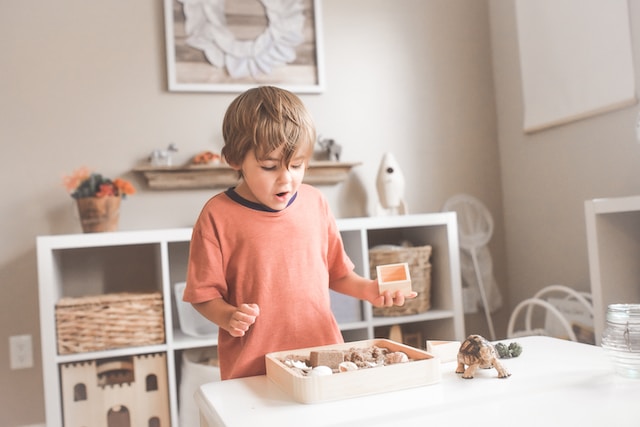In an increasingly demanding environment, cultivating resilience in children has never been more crucial. The ability to reflect on experiences and learn from them fosters emotional growth and equips children with skills that will serve them throughout their lives. When children learn to step back and consider their actions, they develop the strength to navigate challenges effectively. This article delves into the importance of instilling reflection in children and offers practical ways to incorporate these practices into everyday life.
The Importance of Reflection for Children
Reflection is an essential tool for learning and personal growth. Encouraging children to assess their experiences allows them to gain insight into their behaviours and emotions. This practice deepens their understanding of themselves and enhances their problem-solving abilities. When children reflect, they learn to identify what went well and what could be improved, which is fundamental in building resilience.
Children can process their feelings and responses to various situations by cultivating a reflective mindset. This contributes to developing emotional intelligence, which is crucial for managing stress and adversity. Incorporating reflection into daily routines can be as simple as discussing the day’s events at dinner or encouraging children to keep a journal. These activities promote an ongoing dialogue about emotions and experiences. Resources like free lessons learnt templates can provide structured guidance, making this process even more effective.
Furthermore, reflection helps children understand the importance of accountability. As they consider their choices and outcomes, they learn that their actions have consequences, promoting responsible behaviour and decision-making.
Strategies for Encouraging Self-Reflection
Parents can employ various strategies that seamlessly integrate into daily routines to nurture a reflective mindset in children. One effective method is to create a “reflection corner” at home—a designated space where children can sit quietly and think about their day. This area can include prompts, such as questions about their feelings, achievements, or challenges they faced. Providing a safe environment for reflection allows children to process their thoughts and emotions freely.
Involve children in discussions about their experiences after activities, such as sports or school projects. Ask open-ended questions encouraging them to think critically, such as, “What did you enjoy the most?” or “What would you like to do differently next time?” This promotes reflection and helps them articulate their thoughts, which is valuable for their communication skills.
Incorporating storytelling into reflection is also effective. Sharing personal stories of challenges and how they were overcome can inspire children to reflect on their experiences. It’s essential to model vulnerability, showing that facing difficulties and learning from them is okay. When parents share their reflections, it normalises the practice and reinforces its importance.
Using Arts and Crafts for Reflection
Engaging in arts and crafts can be an excellent medium for children to express reflections creatively. Encourage children to draw or create collages representing their feelings about particular experiences. This method allows them to process emotions visually, making reflection more engaging and personal.
For instance, after a school project, ask them to illustrate what they learned and how they felt throughout the process. This promotes creativity and offers an alternative way for children to express their thoughts. Visual arts can uncover deeper insights that verbal communication might miss, providing another layer of understanding.
Providing materials for creative expression can make reflection an enjoyable part of their routine rather than a chore. This approach cultivates a positive association with reflecting on experiences, laying the groundwork for a lifelong habit.
Making Reflection a Family Activity
Family activities can provide rich opportunities for shared reflection. Engage in group discussions during family meals where each member shares a positive experience and a challenge faced that week. This practice reinforces the idea that everyone encounters obstacles and that discussing them is normal.
Additionally, family outings can be moments for reflection. After a trip, discuss what everyone enjoyed most and what they learned from the experience. This strengthens family bonds and instils a collective understanding of learning from successes and setbacks.
Integrating regular family meetings can enhance this practice. Schedule time to discuss household activities, changes, or upcoming events. Allow everyone to express their thoughts, promoting a sense of belonging and validation. This approach shows children that their opinions matter and that it’s essential to consider various viewpoints.
The Long-Term Benefits of Building a Reflective Mindset
Instilling the value of reflection in children paves the way for long-term benefits beyond childhood. As they reflect on their experiences, they become more equipped to handle challenges independently. This skill fosters accountability, as children begin to understand the consequences of their actions and the power of their decisions.
Moreover, reflective practices contribute to enhanced self-esteem and confidence. Children who engage in regular reflection develop a stronger sense of identity and self-worth, knowing they can learn and grow from their experiences. This resilience is vital as they transition into adolescence and adulthood, where challenges become more complex.
Additionally, adopting a reflective mindset prepares children for various life situations, from academic challenges to interpersonal relationships. They learn to approach problems logically and emotionally, fostering critical thinking and empathy. These skills are invaluable as they navigate social interactions and collaborate with others.
Strengthening Emotional Intelligence
Developing emotional intelligence is crucial for success in life. Reflection plays a significant role in this development, enabling children to identify and understand their emotions. As they learn to articulate their feelings, they become more equipped to handle conflicts and develop healthier relationships.
Encouraging children to reflect on their emotions enhances their empathy towards others. When they understand their feelings, they can better relate to peers’ experiences. This understanding nurtures compassion, making children more supportive friends and family members.
By fostering emotional intelligence through reflection, parents lay the groundwork for children to thrive in social scenarios, both in and out of school. These skills will serve them well in their personal and professional relationships as they grow, establishing a foundation for a fulfilling life.
Fostering reflection in children is critical to nurturing resilience and emotional growth. Integrating practices that promote self-assessment enables parents to help their children understand themselves better and prepare them for life’s inevitable challenges.




